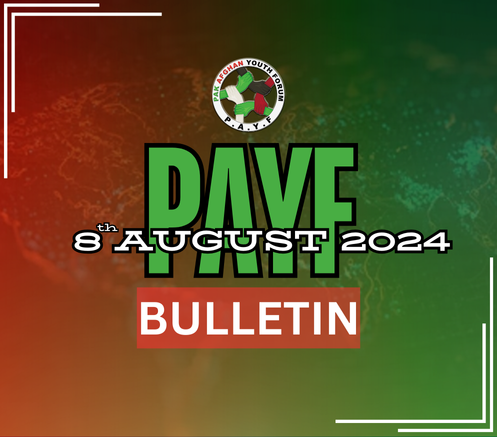We begin our series on Bollywood and Islamophobia with Panipat. On the surface, it seems like a historical retelling. In reality, however, it presents a controversial narrative that distorts history. Why did Bollywood choose the Battle of Panipat for this blockbuster?
The struggle for power and control in the subcontinent during the 18th century was a pivotal moment in history. This period makes for a compelling cinematic adaptation. However, Panipat’s 2019 release was not just about retelling the past. At that time, India was seeking to extend its influence in Afghanistan. The film echoed those geopolitical ambitions through its narrative choices, highlighting the connection between Bollywood and Islamophobia.
Distorting Historical Figures: Abdali and the Marathas
![Ahmed Shah Durrani [TheExpressTribune]](https://pkafgyouthforum.com/wp-content/uploads/2024/09/91824-carpetjpg-1575959821.webp)
The Third Battle of Panipat took place in 1761 between the Maratha Empire and Ahmad Shah Abdali, the Afghan king. This battle was a power struggle for dominance in the region, with alliances spanning from Indian rulers to Afghan tribes. Abdali’s victory reshaped the political landscape. However, the film Panipat oversimplifies this complex historical moment. It reduces Abdali to a “bloodthirsty invader.”
Afghan critics, scholars, and viewers argued that the movie was a clear attempt to vilify one of their national heroes. They claimed it rewrote history to serve Indian nationalist narratives. This situation reflects the ongoing issues surrounding Bollywood and Islamophobia.
Twisted Facts and the Truth
In reality, Ahmad Shah Abdali was not just a ruthless conqueror. He was a military strategist and leader, and his empire was one of the most influential in the region. The film fails to explore his diplomatic strategies, the political alliances he forged, or the regional challenges he faced. Instead, Panipat opts for a simplistic portrayal of Abdali, ignoring his historical significance as the founder of modern Afghanistan and a key figure in the balance of power in South Asia.
On the other hand, the film depicts the Marathas as noble warriors fighting for Indian sovereignty. While the Marathas did fight valiantly, history reveals a more nuanced picture of their motivations and role in the power struggle of the subcontinent. The film presents the Marathas as purely heroic and Abdali as purely villainous. In doing so, it ignores the complexities of this historical conflict. Additionally, it caters to nationalist sentiments, further entrenching the narratives associated with Bollywood and Islamophobia.
Released in 2019, Panipat arrived at a time when India was looking to extend its political and economic reach in Afghanistan. This effort focused particularly on investments in infrastructure and trade. The film’s narrative plays into this geopolitical agenda by demonizing a figure revered in Afghan history. As a result, it led to strong reactions from Afghanistan.
Afghan citizens, critics, and even government officials expressed their dismay. Posts criticizing the movie flooded social media. Many claimed that such distortions could damage relations between the two countries. This situation illustrates the real-world impact of Bollywood and Islamophobia.
Fawad Chaudhry, a prominent Pakistani politician, called out Bollywood for continuously producing films that vilify Muslim rulers. He criticized the industry for rewriting history with a biased lens. Afghan critics echoed similar sentiments. They warned that Panipat was not just a movie; it was a dangerous piece of propaganda that could further strain relations between India and Afghanistan.
The Societal Impact of Historical Rewriting in Bollywood
![Panipat movie still [Cine Photos]](https://pkafgyouthforum.com/wp-content/uploads/2024/09/72289919-1024x576.webp)
With a budget of ₹100 crores (~$12 million), the producers marketed Panipat as an epic, but the film failed to meet box office expectations. It released across India and in select international markets, yet it struggled to turn a significant profit, partly due to the controversies it generated. The significant investment in a project aimed at rewriting history and promoting nationalist ideologies highlights how Bollywood and Islamophobia extend beyond entertainment and into the political sphere.
Visually, Panipat offers grand battle scenes and lavish sets, but the character development is shallow. Abdali’s portrayal, in particular, is one-dimensional. The film ignores his role as a statesman, diplomat, and founder of Afghanistan, instead focusing on portraying him as a brutal conqueror. In contrast, it romanticizes the Marathas, depicting them as fighters for freedom and honor, even though their historical motivations were far more complex.
Shaping Islamophobic Narratives
Historians and scholars have criticized Bollywood for its growing trend of rewriting history. The glorification of certain empires and demonization of Muslim rulers are seen as a reflection of modern political dynamics in India, where nationalism and Islamophobia are on the rise, demonstrating the entwined nature of Bollywood and Islamophobia.
Scholars argue that such films have a deep societal impact, as they shape public perceptions of history and reinforce dangerous stereotypes. As one Afghan critic noted, “Panipat isn’t just a distortion of history; it’s an assault on the shared cultural and historical heritage of South Asia.”
Panipat serves as a powerful example of how Bollywood films can distort historical events and characters to fit modern political narratives. As we continue our series on Bollywood and Islamophobia, we’ll explore more films that push similar agendas, questioning the ethics and implications of such portrayals.
Stay tuned for more critical reviews in our series on Bollywood and Islamophobia!
Also See: Legacy and Paradox: Contemporary Relevance of Two-Nation Theory


![Ahmed Shah Durrani [TheExpressTribune]](context.core.image.imageCurrentSrc)
![Ahmed Shah Durrani [TheExpressTribune]](selectors.core.image.enlargedImgSrc)

